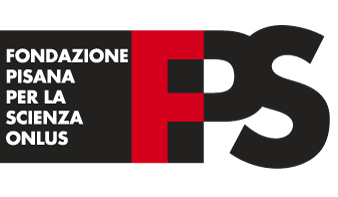Pancreatic Cancer
Pancreatic ductal adenocarcinoma (PDAC) is the most common tumor of the pancreas, and represents a major unsolved health problem. With a 5-year survival around 8%, PDAC is the only major tumor with predicted increasing mortality rates for both men and women, and will become the 2nd leading cause of cancer deaths in 2020. This dismal trend is due to rising incidence and poor clinical outcome, caused by lack of biomarkers for early screening/diagnosis, and limited efficacy of available chemotherapeutic treatments. Most patients are diagnosed with advanced-stage disease, characterized by infiltration of lymph nodes and vasculature, as well as metastasis to liver, lungs and peritoneum, and less than 20% are eligible for surgical resection.
EARLY DIAGNOSIS
FPS Grant “Evaluation of liquid biopsies and tumor-educated platelet profiles for screening and monitoring of pancreatic cancer”
PI: Elisa Giovannetti
Since survival of PDAC patients is significantly correlated with disease stage, early diagnosis will strongly contribute to improved cure rates.
Keeping with the research of the FPS “Laboratory of Genomics and Transcriptomics”, the main focus of our FPS project is to use cutting edge technology platforms for genomics and transcriptomics in order to contribute to more accurate and earlier diagnostic tools for pancreatic cancer. By using next generation sequencing (NGS), we will optimize previous protocols on liquid biopsies and we will develop blood-based tests that allow earlier diagnosis as well as more accurate monitoring of PDAC.
FPS/AOUP people involved: Elisa Giovannetti, Mjriam Capula, Niccola Funel, Luca E. Pollina, Luca Morelli, Giulia Mantini
External collaborators: Ingrid Garajova, Marcello Tiseo (University of Parma), Christian Rolfo (University of Baltimore, US), Andrea Mambrini (Carrara Civic Hospital), Carmelo Tibaldi (Lucca Civic Hospital), Michele Milella (University of Verona) Michele Reni (San Raffaele Hospital, Milan), Adam E. Frampton (Imperial College London, UK), Thomas Wurdinger, Connie Jimenez, Geert Kazemier (Amsterdam University Medical Centers, VU University, Amsterdam, NL).
NEW THERAPIES AND TREATMENT TAILORING
AIRC Start-Up project “Bioluminescent pancreatic cancer mouse models from genetically characterized primary cells: a platform for drug discovery”
PDAC is a chemoresistant tumor and experimental therapeutic agents have thus far showed limited effects. The working hypothesis of our AIRC Start-Up project is that current therapies can be implemented by the establishment of a novel platform of orthotopic preclinical models, bearing the genetic profiles and stemness properties of PDAC, and that could be monitored longitudinally with effective imaging techniques. Therefore we propose to use our unique primary PDAC cell cultures and tissue specimens in order to establish a robust imaging platform for in vivo screening of innovative drugs, as well as to further delineate the biology and genetic characteristics of PDAC.
FPS/AOUP/University of Pisa people involved: Elisa Giovannetti, Mjriam Capula, Niccola Funel, Giulia Mantini, Enrico Vasile, Filippo Minutolo,
External collaborators: Amir Avan (Mashhad University of Medical Science, Mashhad, Iran), Yehuda Assaraf (Technion-Israel Institute of Technology, Haifa, Israel), Adam E. Frampton (Imperial College London, UK), Ingrid Garajova, Marcello Tiseo (University of Parma), Nadia Zaffaroni (Istituto Nazionale Tumori, Milano), Thomas Wurdinger, Jacqueline Cloos, Geert Kazemier (Amsterdam University Medical Centers, VU University, Amsterdam, NL), Maarten Bijlsma, Hanneke van Laarhoven (Amsterdam University Medical Centers, AMC, Amsterdam, NL).
More details on this project are reported in the webpage: http://www.cancerpharmacology.org
